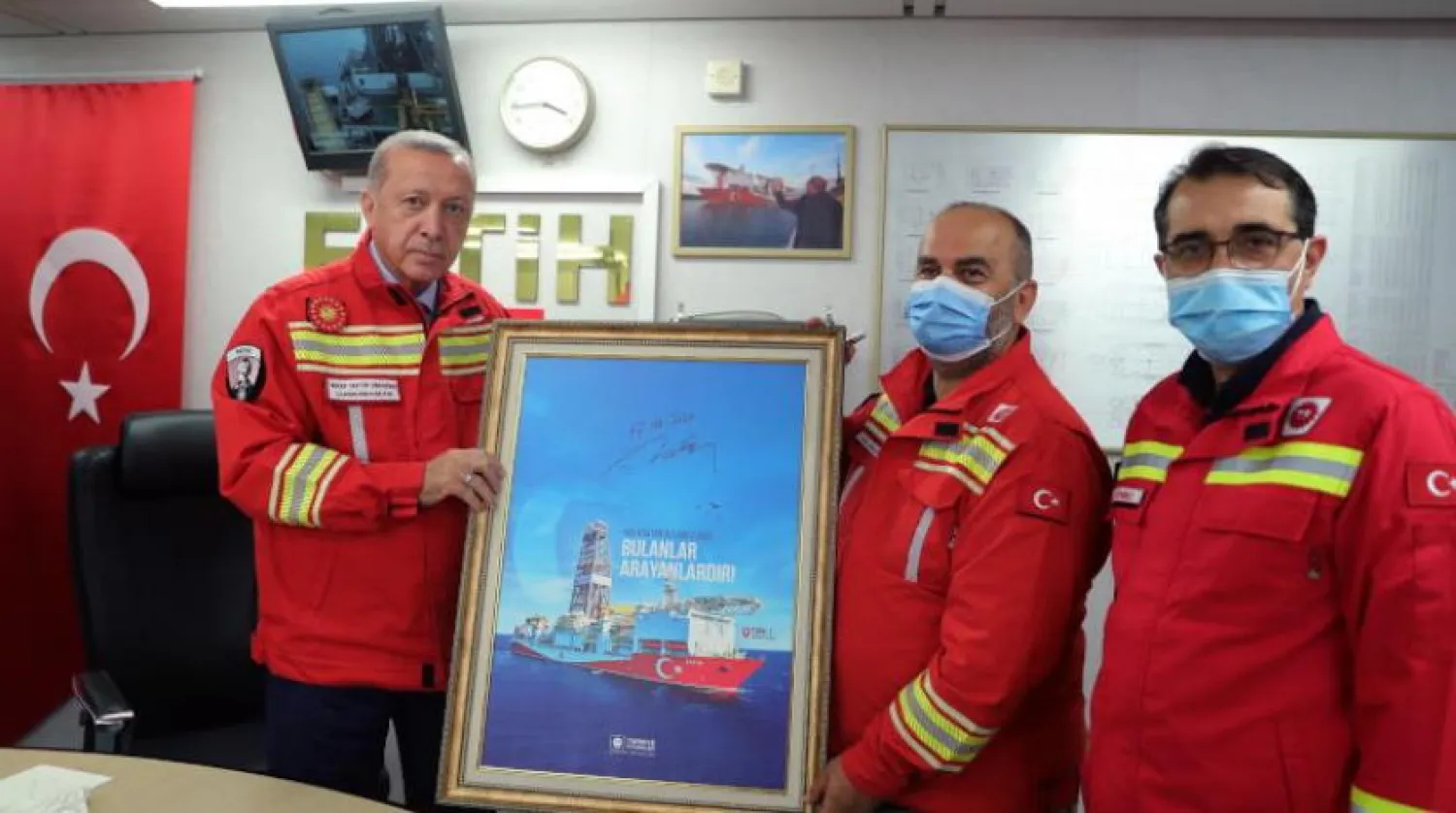Turkey has raised the estimated reserves in a gas field off its Black Sea coast to 405 billion cubic meters after finding an additional 85 billion cubic meters, President Recep Tayyip Erdogan said on Saturday.
Erdogan said in August the field contained 320 billion cubic meters of gas, making it Turkey's biggest natural gas discovery.
The Fatih drill ship made the discovery about 100 nautical miles north of the Turkish coast. Even before Saturday's revision, analysts had said that the find represents a major discovery and was one of the largest global discoveries in 2020.
"Work in this borehole has been completed after reaching a depth of 4,775 meters as planned previously," Erdogan said, speaking onboard the Fatih.
He said the vessel would start new operations in a different borehole in the same field, called Sakarya, next month after returning to port for maintenance. Another ship, called Kanuni, is also headed to the Black Sea for drilling operations, he said.
If the gas can be commercially extracted, the discovery could transform Turkey's dependence on Russia, Iran and Azerbaijan for energy imports.
Turkey expects the first gas flow from field in 2023. One source close to the matter said an annual gas flow of 15 billion cubic meters was envisaged from 2025.
Ankara expects gas suppliers to offer more competitive pricing and flexibility if they want to renew long-term contracts totaling 16 billion meters per year.
More than a quarter of Turkey's long-term gas contracts expire next year, including imports via pipeline from Russia's Gazprom and Azerbaijan's SOCAR and a liquefied natural gas (LNG)deal with Nigeria, Reuters reported.
Turkey has also been exploring for hydrocarbons in the Mediterranean, where its survey operations in disputed waters have drawn protests from Greece and Cyprus.









